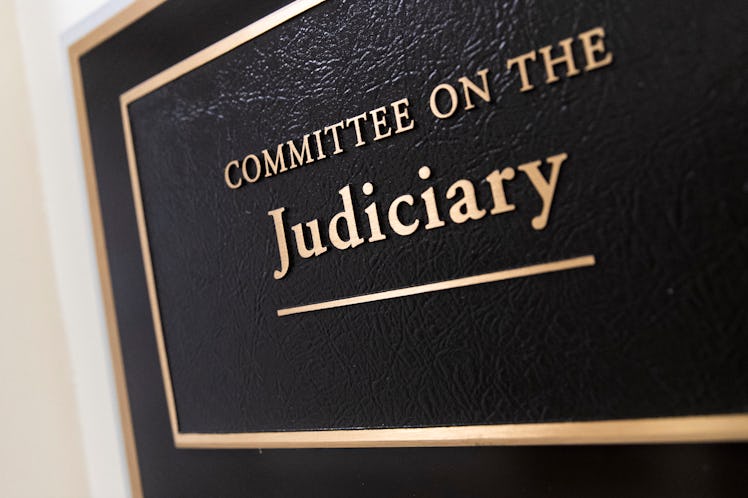
The House Judiciary Committee Will Vote To Possibly Subpoena Mueller's Report
Since news broke on Friday, March 22 that Special Counsel Robert Mueller had completed his report on whether the Trump campaign colluded with Russian operatives during the 2016 presidential election, everyone has been wondering what will happen next. After Attorney General William Barr released a summary of the report concluding that no collusion had been committed, President Donald Trump and his allies announced themselves vindicated. While the Trump administration may believe they're in the clear, it looks like the House Judiciary Committee isn't letting it go. So, will the Mueller report be subpoenaed? It's being taken to a vote.
On Monday, April 1, The Hill reported that the House Judiciary Committee has scheduled a vote on Wednesday, April 3 to whether they will subpoena the full Mueller report. While Mueller's report was submitted to the Department of Justice (DOJ) on March 22, so far, the public (and Congress) has seen only Barr's summary of Mueller's findings, released on March 24, which stated that the investigation had found no collusion. Barr said the report had not drawn a conclusion regarding obstruction of justice, saying explicitly that it neither concluded the president had committed a crime nor exonerated him. Barr wrote in his summary that the DOJ had decided there was "not sufficient" evidence to establish that Trump had committed a crime. Barr announced on March 29 that Congress can expect to see a redacted version of the report by mid-April.
Well, despite Barr's summary, the House Judiciary Committee is apparently still interested in what the full report has to say. On March 22, House Judiciary Chairman Jerrold Nadler released a statement in regards to the House's upcoming vote. He said,
The Attorney General should reconsider so that we can work together to ensure the maximum transparency of this important report to both Congress and the American people.
The committee's decision to vote on subpoenaing the Mueller report has been supported by some members and heavily criticized by others. Georgia Rep. Doug Collins, the top Republican member on the House Judiciary Committee, responded to Nadler's statement by criticizing the decision to vote on the report. He said,
Judiciary Democrats have escalated from setting arbitrary deadlines to demanding unredacted material that Congress does not, in truth, require and that the law does not allow to be shared outside the Justice Department. It’s unfortunate that a body meant to uphold the law has grown so desperate that it’s patently misrepresenting the law, even as the attorney general has already demonstrated transparency above and beyond what is required.
Even though Mueller's report stated that Donald Trump isn't fully exonerated, apparently, the president and his administration believes otherwise. On March 24, White House Press Secretary Sarah Sanders shared an emailed statement to Elite Daily about Mueller's findings. The statement read,
The Special Counsel did not find any collusion and did not find any obstruction. Attorney General Barr and Deputy Attorney General Rosenstein further determined there was no obstruction. The findings of the Department of Justice are a total and complete exoneration of the President of the United States.
That same day, Trump also took to Twitter to share his thoughts on the matter, which involved "no collusion," "no obstruction," and "total exoneration."
The anticipation for the Mueller report may officially be over, but judging by the House Judiciary Committee's reaction, I doubt this will be the last we hear of it. Don't touch that dial, folks.